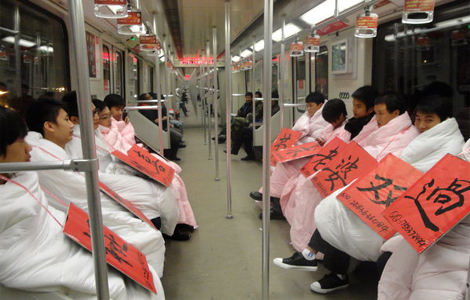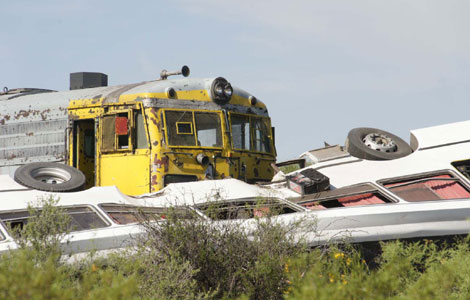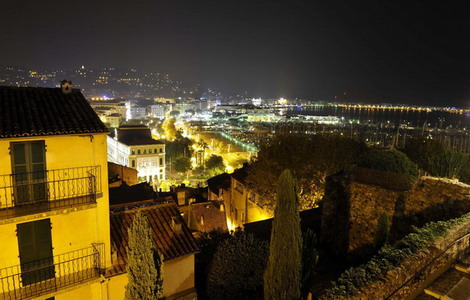Thailand will struggle to prevent future floods
Updated: 2011-11-03 15:58
(Agencies)
|
|||||||||||
"Everything built on flood plain"
The role that dams played in the disaster is being debated but some experts say authorities in charge of the dams scattered over uplands in the north were too slow to release water.
When they had to, to stop dams bursting, unusually heavy monsoon rain was falling and the rivers were full.
"Bangkok has grown so much and everything is built on the flood plain. In the short term, not much can be done besides good management," said development economist Sawai Boonma, who has been studying Thailand's flood problem for decades.
"They have try to release the water gradually as it builds up in the dams. This time they waited until the dams were over-capacity. That's why the volume of water was so huge."
The priority of the authorities managing dams is irrigation and they were perhaps understandably reluctant to let a lot of water out early after a drought last year, said Chaiyuth.
In the longer term, Sawai said flood spill-ways, one kilometre (half a mile) wide should be created both to the east and west of Bangkok, with even a smaller one through the city.
People should also think about getting out of the flood plain, where the annual deluge brings such bounty in the fields, said Sawai. He envisages satellite towns built on higher ground linked to Bangkok by high-speed train.
A newer industrial zone southeast of Bangkok, which has no major river basin, has escaped the flooding.
"Not only have they put the industrial estates in the danger area, they've built over the best rice fields. It's lose-lose," Sawai said.
A newer industrial zone southeast of Bangkok, which has no major river basin, has escaped the flooding.
Climate change with its expected rise in sea levels and more storms only make a re-think more critical, he says.
Von der Luehe said Thailand was still good for business, despite the floods and the danger of more, because of factors such as location and infrastructure.
"Obviously, investors should consider locations. Not everything has been flooded," he said. "Overall, when we look at the neighbouring countries, Thailand is still a strong destination. We are in a good position here."
Hot Topics
Libya conflict, Gaddafi, Oil spill, Palace Museum scandal, Inflation, Japan's new PM, Trapped miners, Mooncake tax, Weekly photos, Hurricane Irene
Editor's Picks

|

|

|

|

|

|







